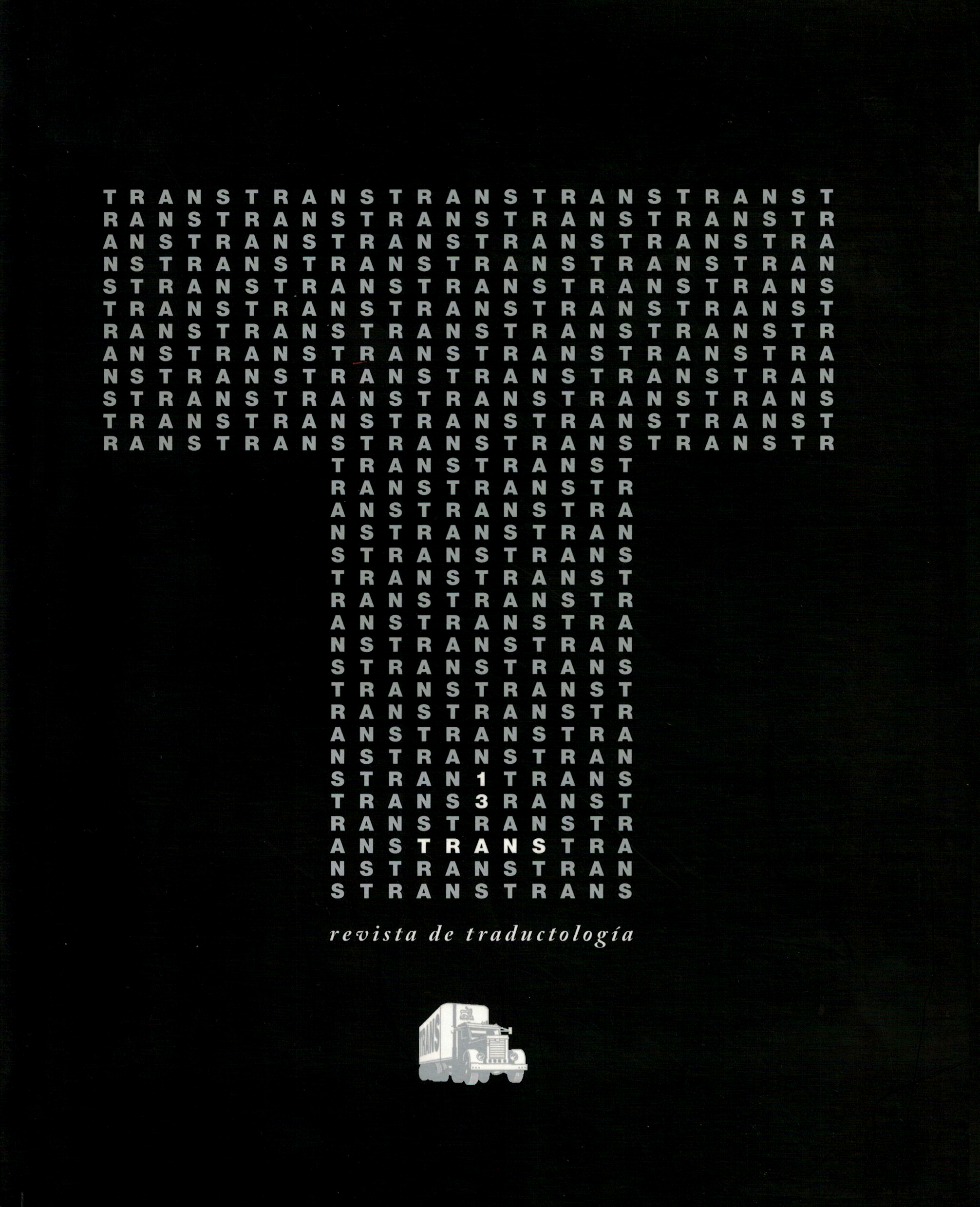The Force of the Classics and the Challenge of Cultural Extremity
DOI:
https://doi.org/10.24310/TRANS.2009.v0i13.3153Keywords:
obras clásicas, transmisión cultural, la nueva obra de teatro, estructura de sensibilidad, Neruda, Parra.Abstract
Este trabajo tiene como objeto estudiar la manera en que las obras de teatro transitan entre las distintas culturas. Analizamos la traducción de Romeo y Julieta realizada por Pablo Neruda como si fuese una nueva obra de teatro en la cultura meta. De esta forma el trabajo plantea cuestiones sobre la transferencia de la obra de teatro como un capital cultural y el impacto que tiene este hecho en la cultura de llegada. A manera de réplica, el ensayo indaga en la transferencia que se produce desde el contexto chileno a la comunidad internacional, preguntándose cómo traducir obras de teatro que evoquen el máximo grado cultural y proponiendo la idea de que la respuesta reside en el estudio de la poética teatral de cada obra. Por consiguiente, el proceso tiene la misma dinámica que la traducción de Shakespeare al español de Chile y el estudio del movimiento entre diferentes estructuras de sensibilidad nos permite adoptar un enfoque creativo en el estudio del tráfico cultural.
Downloads
Metrics
Publication Facts
Reviewer profiles N/A
Author statements
Indexed in
-
—
- Academic society
- N/A
- Publisher
- Universidad de Málaga
Downloads
Published
How to Cite
Issue
Section
License
All contents published in TRANS. Revista de Traductología are protected under the Creative Commons Attribution-NonCommercial-ShareAlike 4.0 International (CC BY-NC-SA 4.0) license. All about this license is available in the following link: <http://creativecommons.org/licenses/by-nc-sa/4.0>
Users can copy, use, redistribute, share and exhibit publicly as long as:
- The original source and authorship of the material are cited (Journal, Publisher and URL of the work).
- It is not used for comercial purposes.
- The existence of the license and its especifications are mentioned.
- ShareAlike — If you remix, transform, or build upon the material, you must distribute your contributions under the same license as the original.
There are two sets of authors’ rights: moral and property rights. Moral rights are perpetual prerogatives, unrenounceable, not-transferable, unalienable, imprescriptible and inembargable. According to authors’ rights legislation, TRANS. Revista de Traductología recognizes and respects authors moral rights, as well as the ownership of property rights, which will be transferred to University of Malaga in open access.
The property rights are referred to the benefits that are gained by the use or the dissemination of works. TRANS. Revista de Traductología is published in an open access form and it is exclusively licenced by any means for doing or authorising distribution, dissemination, reproduction, , adaptation, translation or arrangement of works.
Authors are responsable for obtaining the necessary permission to use copyrighted images.













21.png)
